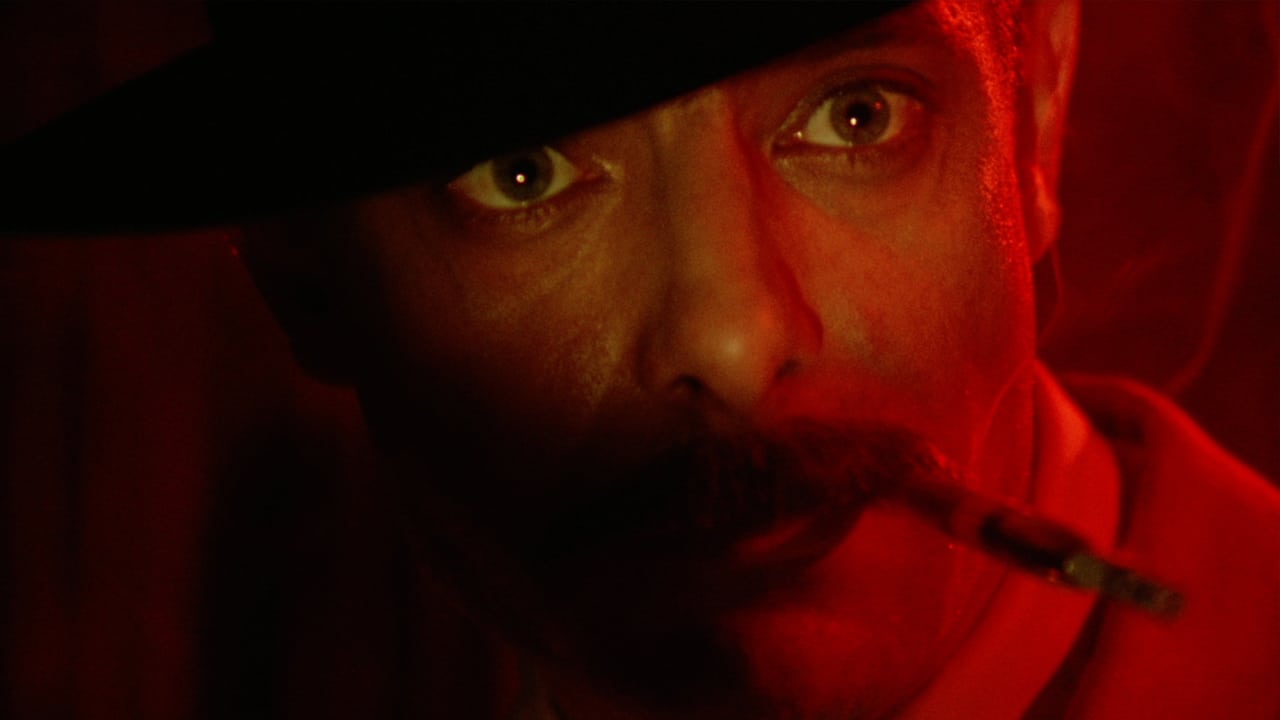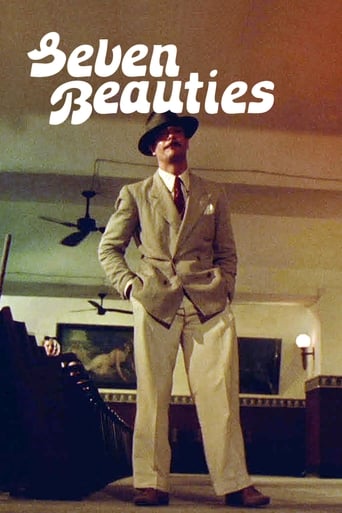

This film deals with idealism vs. pragmatism. The main character starts off deeply caring about his honor, then gradually gives it all up until he becomes a prostitute for the Nazis and complies in killing his friend for his own survival. Several of his peers retain their ideals, refuse to submit, and die pathetic deaths.The film seems to be admitting a harsh truth of reality: that life is ultimately about survival and that ideals and thoughts are not important beyond how they influence our actions. At some point they hold us back and we're better off abandoning them.At one point the Nazi female commander laments that the Nazis are trying to make humanity better but doomed to fail, and the snivelling rats who will do anything to survive (the main character) will continue on. This is a good point. The Nazis were idealistic too in wanting to elevate humanity.So the film isn't on the side of idealism or pragmatism. Clearly humanity is a complex combination of both; every person has some degree of fundamental ideals and some degree of flexibility and pragmatism. And there are many different ideals that are in opposition to one another.One of the idealist characters at one point mentions a possible resolution that is popular: for humans to turn into sheep. If we can only stop evolution and eliminate violence from the world, we can live happily ever after.The film is otherwise lacking in insight. It's not clear what it views as a resolution. It does seem clear that the film isn't happily embracing the world as it is, give its sombre tone.The film starts out with a montage of stock footage of Hitler and Mussolini set to cartoonish music and a voice narrating some phrases that sound like they're probably insulting. A short ways in, we see evil Nazis shooting innocent women and children in the forest. At one point, the dialogue is set up for one character to defend Mussolini and another, wiser character to rebut all of their arguments and explain why Mussolini was bad. Finally, the characters end up in a concentration camp where evil Nazis shoot innocent prisoners for no reason. Who knows what the director really believes - she isn't telling us - but the apparent heavy anti-Nazi, Nazis-are-pure-evil bias of the film is annoying.The film is otherwise fairly mediocre. Far from a masterpiece. It's an odd mixture of genres. Not very funny. The best thing about it is probably the excellent acting of the main character.
... View MoreLena Wertmuller has created a fascinating cocktail, one part anti-war film, one part medieval morality play, one part black comedy, shaken vigorously and poured over plenty of fine acting.If growing up in Fascist Italy doesn't give a young boy a slightly distorted sense of manhood, having your bricklayer father die leaving you the sole male in a family of a mother and seven sisters, made sure of the fact; so we find Pascolino, a handsome but strutting ladies' man who carries a pistol in his belt to "command respect." And so begins a roller coaster of events both comic and tragic that deliver him like so many other young men, into the maw of WW2, completely unprepared to cope with the stupidity and inefficiency of large governments at war, the contempt for both the sacred and the profane, the massacre of civilians unlucky enough to be in the way, the destructions of villages, towns, even entire cities, in short these young men are overwhelmed by the evil that is created from both sides of every war as surely and repetitively as an ocean beach is overwhelmed by the incoming tides.Seven Beauties makes its anti-war thrust accessible like another more famous film, Catch-22, by blurring it's humor into the absurd. When Wertmuller shows us the vapidness of Pascolino's life as he struts around the family business or ghoulishly dismembering a body he killed, I think she is taking a more profound view of human existence than just an anti-war film, by showing us the inconsistencies, follies, and sin that inhabit everyday life, might even be the building blocks of national wars. Pascolino's supposed credo is respect, yet where is the respect in defending your sister's honor, if she is in love with her pimp; of challenging the pimp mano a mano, only to kill him by accident ; of volunteering to fight for his country, as a way to escape from a psychiatric ward; of shooting your friend, to save your own life; of finally returning home from defending your country, to find your seven sisters have become prostitutes? The inevitable question becomes, what is there to respect? Even the representative of authority and control, the prison camp commandant, is swept away by the follies of her own system and the temptations of power, while Pascolino is an Everyman, demonstrating the inevitable folly humankind falls into trying to live apart from God.
... View MoreWertmueller has created a wonderful, rich and full portrait of a petty criminal whose life takes a series of severe and life changing turns. While the character of Pasqualino (Giannini)is presented as a 'cafone' (clown), his life's situation is one that is sympathetic. As we follow the course of this period of his life, we see Pasqualino's character change from insignificant ne'er-do-well into an Everyman caught up in the horrors and inhumanity of war.Giannini portrays his character from start to finish with all the authenticity that he brings to all of his work. As Pasqualino, he plays the clown, the would-be criminal, inmate, soldier but above all a man surviving by his wits and to the best of his ability in the insane situation of war.The defining scene of Pasqualino's spirit takes place during his German captivity as he stands, with hands on head (after refusing to inform on his fellow POWs), singing 'Maria' in his guttural, gritty voice. This simple yet powerful scene touches every heart as Pasqualino's fight for human dignity is clear.Once again, Wertmueller has given us a capsule of Italian life during a horrendous period of history and has made it relevant to us all, for all time.
... View MorePasqualino Settebellezze is one of the great films on the 20th Century and about the 20th Century. It is about survival in unsurvivable circumstances. It is about Life breaking through the most vicious impositions of death imaginable. It is about survival conveying a nobility that may be undeserved but is nonetheless achieved. Another reviewer compared it to Life is Beautiful but doing so both cheapens Seven Beauties and unjustifiably aggrandizes Benigni's rather pallid opus. Where Benigni travels a pedestrian path, Wertmuller soars into the sublime.It might be a good idea to watch this movie as a mini-Wertmuller festival starting with The Seduction of Mimi, thence to Swept Away and finally to Seven Beauties. If you don't think that Giancarlo Giannini is a great actor in the mold of Marcello Mastroianni when you've done watching those three films then you need some instruction in what acting is all about.Fernando Rey turns in the best performance he ever gave for a director other than Luis Bunuel and Shirley Stoler is magnificent. Funny, sad, and terrifying by turns. She was a much underrated actress.Pasqualino Settebellezze ranks with 8 1/2, Grand Illusion, The Last Laugh, The Seventh Seal, Derzu Uzala and Citizen Kane as a great masterpiece. To pass it up is like not reading Hamlet or Don Quixote. It's impossible to understand film without it.
... View More